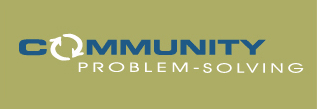Problem-solving in a world of differences. Finding common ground without being afraid to disagree. Getting things done democratically and effectively. Building better solutions, not just bigger ones. Dealing with more stakeholders and issues more complex than ever before. Learning to make new mistakes, not the same old ones.
Welcome to The Community Problem-Solving Project @ MIT, a resource for people and institutions worldwide. The users of this site work in all three sectors--public, nonprofit (or non-governmental), and private--and across them. They work on a wide variety of issues, from housing and health care to education and the environment, from labor and economic development to crime and public safety and "comprehensive" community change. They are managers, organizers, supporters, investors, educators and trainers, evaluators, everyday citizens, and more, working in cities and rural communities around the globe to tackle important social problems and seize opportunities to promote change.
Here you can access strategy tools for collective problem solving in your community or field.
Note for instructors: No permission is required for any and all educational use of the strategy tools, as long as they are provided free or at cost of reproduction.
The tools here won't answer all your questions, of course, but you'll get some useful answers, plus leads on other advice--more and more of it available on the web or in print but widely scattered. And we just might make you think about some new questions, too.
What does "problem-solving" include? In the broadest terms, it takes both "will" and "way" to improve a project, an organization, or an entire community or region. That is, it takes both support and commitment from stakeholders ("will"), as well as the needed productive capacity ("way"), to make an impact on conditions in the world.
At the core of this work is strategy--the set of ideas or insights that help us act smarter on hard problems, in a world of changing needs and changing rules. This site will help you be more strategic about who you work with and how, which problems you decide to tackle, how you tackle those problems, and how you learn from your work and that of others.
Why "community" problem-solving? Because democracy is much more than doing political advocacy, voting in free and competitive elections, enjoying and protecting our civil liberties, and so on. Democracy is about creating more and more capacity to do two things, fundamentally: effectively pick important problems that we want to work on, and then work on them together in just and productive ways. For a growing variety of challenging issues, much of this problem-solving capacity, though not all, must be created and put in motion at the local or "community" level, which may mean a big city, small town, neighborhood or other well-defined place that people share.
This website is part of ongoing research, teaching, and outreach work based at the Massachusetts Institute of Technology (MIT). The project was made possible by support from the Annie E. Casey Foundation, Harvard University's Hauser Center for Nonprofit Organizations, and the Rockefeller Foundation (see About Us).
Be strategic, get engaged, make a difference in the world. Make new mistakes.


